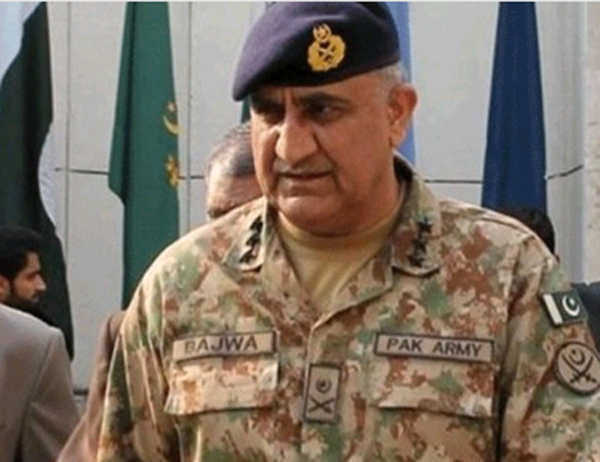
The Pakistan army chief, Gen Qamar Javed Bajwa’s speech on Sunday at Kakul Military Academy’s passing out ceremony received a much wider audience due to a surprising olive branch towards India. Gen Bajwa’s supposed quest for a “comprehensive and meaningful” dialogue echoed the Pakistan Foreign Minister’s formulation a couple of months back. South Block will be studiously reading the tea leaves to determine if the Pakistan state’s civilian and military wings are at last on the same page. Gen Bajwa has been more substantive and realistic; Indo-Pak talks, he said, would be the precursor to peace. In other words, the process of talks may not be a guarantee of return of instant civility between the two countries but promises to be the harbinger of a meaningful breakthrough.
Both sides have been tentative in testing the waters for reopening dialogue on “core” issues by opting to break bread on less waspish issues such as exchanging prisoners on humanitarian grounds. The approach is in tune with the push towards a web of energy and transportation links which necessitates close coordination among all participants. Sooner or later, the Pakistan army must accommodate India in one of biggest energy projects in the region — the four-nation TAPI gas pipeline. General elections are just three months away and the promise of TAPI gas will shore up the army’s stock which has already succeeded in marginalising Nawaz Sharif.
Gen Bajwa’s sole swallow, however, is unlikely to make a summer. Both sides have generated considerable bad blood since talks broke down three years back. The border remains alive and India’s core concern about Pakistan-incubated terrorism remains unmet. The spat over Sikh pilgrims in Pakistan highlights the level of testiness in bilateral ties. On the other side, the hawkishness in the Indian political right and the near-constant unrest in Kashmir seem to justify the Pakistan army’s all-consuming posture against India. Despite the favourable winds of regional economic cooperation, India should wait for the elections to throw up a new, preferably stable, civilian leadership to discuss the more substantial politico-military issues like Siachen, Kashmir and terrorism. Meanwhile, the channel of National Security Advisers and the nascent dialogue proposals can serve as vehicles to leverage the currently open window of conviviality. Apart from the respective “core” issues — terrorism (India) and Kashmir (Pakistan) — there is the world of trade, fluid borders and a settlement on Afghanistan that needs to be explored.



























